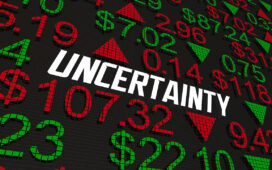Values-based investing helps young investors build long-term wealth by aligning their personal goals with industries and companies that reflect their beliefs and priorities.Getty Images
Aishwarya Puttur opened her first bank account when she was 14, at a time when she admits she knew little about financial literacy. As she got older and became more involved in climate justice, Ms. Puttur was shocked to learn that many large banks invest in fossil fuels – an industry she saw as contributing to environmental and human harm.
“That’s when I started exploring this intersection of financial institutions and social impact,” she says.
Besides working out of Waterloo, Ont. as an activist and a youth columnist for CBC, Ms. Puttur – now 19 – is an adviser to Cool Climate Club, a youth-led brand that works with retailers to advance sustainability through tree planting and forest stewardship. What people might not see is how her values inform the kind of financial portfolio she’s building in her personal life.
“I’m making a conscious decision to research who I’m investing with,” she says. “Businesses can no longer be just for profit. They must be for the people and for our planet as well.”
Ms. Puttur is by no means an outlier among her peers. A survey by Money.ca found that 68 per cent of investors 18-29 are willing to divest from socially irresponsible companies – such as those that commit human rights violations, engage in unethical labour practices or lack environmental sustainability initiatives – in favour of ethical stocks.
Begin building your ethical emergency fund
Values-based investing isn’t new, but Generation Z might not always know the best way to begin.
Tim Nash is the founder of Toronto-based Good Investing, a coaching service that aims to help a million Canadians invest more intentionally. He says Gen Z professionals should build their financial portfolios by approaching it as a sustainable investment journey – a lifelong activity where continuing planning will pay off over time.
A good starting point would be setting up what he calls an “ethical emergency fund” to avoid having to make hasty decisions based on short-term financial needs. Save up three to six months’ worth of expenses and put it in an account or fund that is liquid, he suggests, meaning its value won’t drop if you need to convert it into cash. This could be done through a credit union, a solution like Wealthsimple Cash or an institution like EQ Bank, he says.
In your long-term bucket, you can then look for exchange traded funds (ETFs) made up of companies that are focused on environmental, social and governance (ESG) criteria. All-in-one ETFs are made up of a highly diversified set of stocks and bonds, however, and Mr. Nash says conversations with your investment adviser should clarify where exactly your money is going.
“You want to earn the same rate of return as you would otherwise, but get rid of the nasty stuff,” he says. “And everyone’s going to have a different idea of what that means.”
Wealth creation through values-based investing is possible
Cindy Marques, a certified financial planner and director at Open Access Ltd., says there can be misperceptions that values-based investing means sacrificing wealth.
“It’s not a matter of choosing one over the other, where you say, ‘I’m going to be socially responsible with my investments,’ or ‘I’m going to get competitive returns,’” she says. “In many instances, companies that are structured to ESG-compliant metrics, or socially responsible metrics, tend to be more resilient and prepared for other risks that come up. And they’re able to sustain market downturns or volatility in a similar manner as any other competitive company or fund.”
Ms. Marques suggests reflecting on whether you’re simply trying to avoid investing in certain areas – such as the alcohol, tobacco and gambling sectors – or want to invest in companies pro-actively doing good in the world. This could include organizations that are putting people from under-represented communities on their board, for example, or which have committed to sustainability goals.
“You have to make sure you’re satisfying what’s actually important to you as an investor, rather than just applying a negative filter,” she says.
Aligning your values and finances is a long-term effort
Values also tend to change over time, Ms. Marques points out. Approaches to running a business that once seemed acceptable may become taboo or even considered unethical. That means values-based investing can require careful research into the claims a company makes, the actions it takes to back them up and how they are measuring their progress.
“This is a lot of work for the average investor, and I would not necessarily task them to do that themselves,” she says. Instead, look for advisers that make their philosophy for picking and choosing their investments clear, and let them do that due diligence on your behalf.
Values-based investing may appeal to Gen Z professionals in part because they have been witnesses to continuing cracks in the economic system, Mr. Nash says, leading to consequences ranging from climate change and food insecurity to affordable housing and more.
“When you understand those systemic issues, all of a sudden you start to say, ‘Okay, I want to be part of something different.’”





